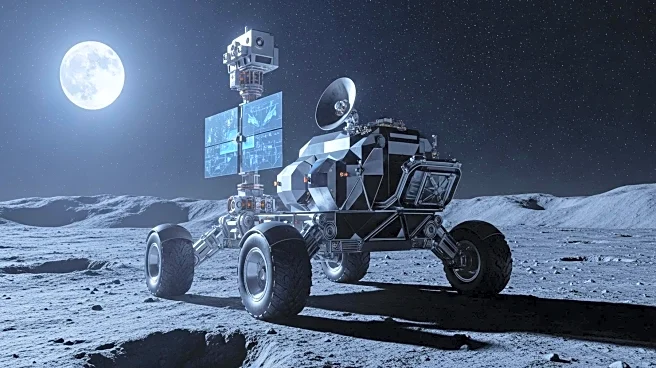What is the story about?
What's Happening?
ispace Europe, a subsidiary of the Japanese company ispace, is making strides in lunar exploration by developing cost-efficient methods and technologies. The company is working on the MAGPIE mission, which aims to study hydrogen on the moon. This mission is part of a broader effort to establish a European presence in lunar exploration, with Luxembourg emerging as a key hub for space activities. ispace Europe is leveraging 'new space' approaches to offer mission services to the European Space Agency (ESA) and other partners, focusing on surface mobility and resource discovery.
Why It's Important?
ispace Europe's initiatives highlight the growing interest in lunar exploration and the potential for Europe to play a significant role in the emerging lunar economy. By adopting innovative approaches, the company is setting a precedent for cost-effective space exploration, which could lower barriers for other entities. The collaboration with ESA and other international partners underscores the importance of cooperation in advancing space exploration. Luxembourg's role as a space hub reflects the strategic importance of space resources and the potential for economic growth in this sector.
What's Next?
The success of the MAGPIE mission and other projects will depend on continued support from ESA and other stakeholders. The upcoming ESA ministerial council meeting will be crucial in determining the future of European lunar exploration initiatives. ispace Europe aims to launch its missions in the late 2020s, with the potential to significantly contribute to the understanding of lunar resources and the development of a sustainable lunar economy.
Beyond the Headlines
The focus on hydrogen exploration on the moon could have long-term implications for energy resources and sustainability. The development of a lunar economy may lead to new industries and job opportunities, influencing global economic dynamics. The collaboration between public and private sectors in space exploration could serve as a model for future initiatives in other areas.
















